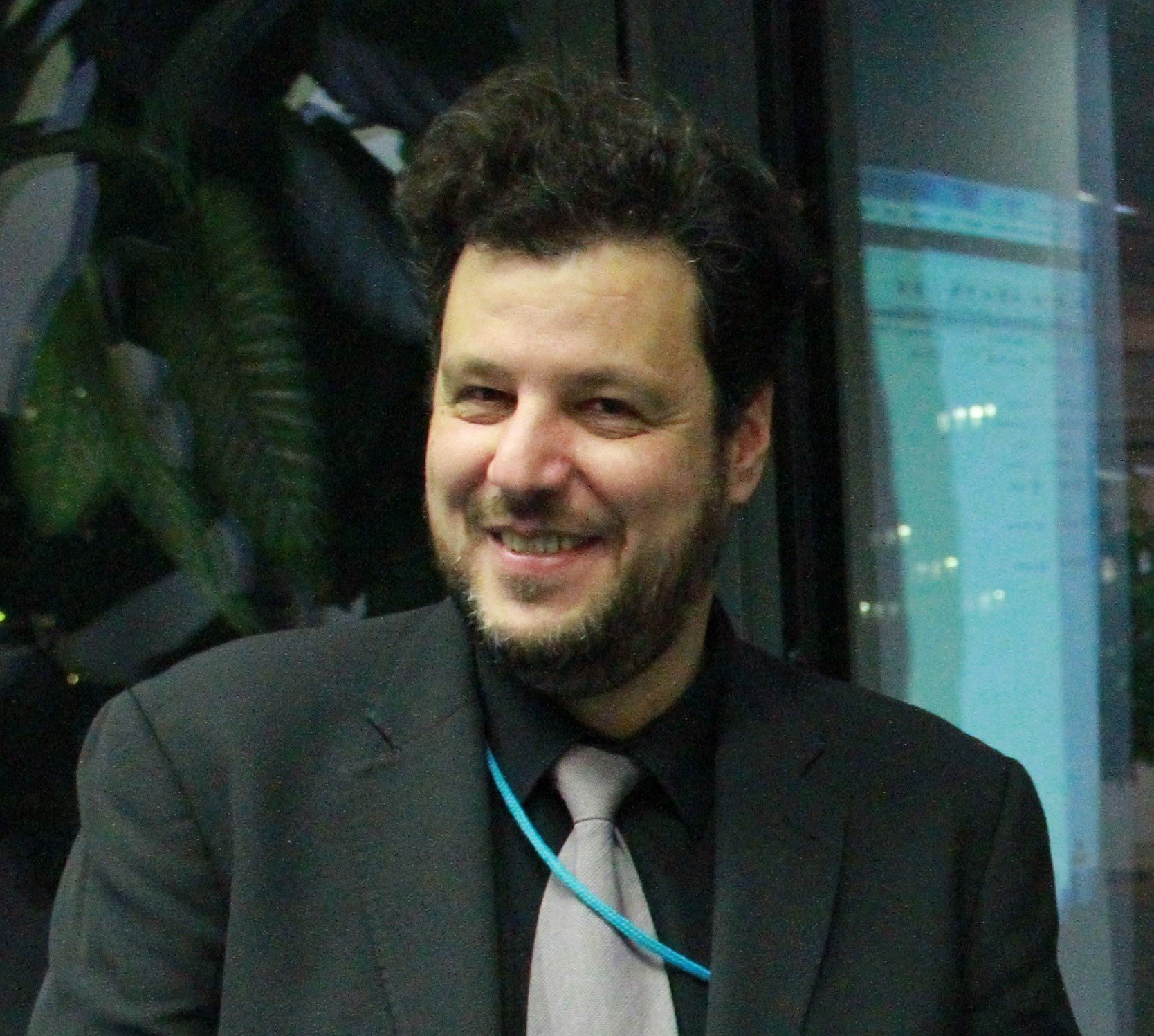Members of the Open Science community react to the UNESCO Recommendation
We asked 15 leading experts and advocates of the Open Science and Open Access movement to share their views on the significance of the UNESCO Recommendation on Open Science adopted in late 2021. Here are their responses and their own recommendations for how to achieve the objectives set by UNESCO.
Jean-Claude Burgelman
Editor in Chief, Frontiers Policy Labs
On November 21, 2021, 193 members of the United Nations Educational, Scientific, and Cultural Organization (UNESCO) adopted a recommendation on open science and, in the absence of the U.S., set the first international open-science framework. This is a remarkable achievement. Less than 6 years ago, when the European Commission launched its comprehensive open-science policy in 2016, the concept of open science was received primarily with scepticism in most global science policy discussion fora.
The UNESCO Recommendation on Open Science is a much needed and welcome step forward for the future of science and society. The ongoing COVID-19 pandemic has been instrumental in holding a mirror to scientists and policymakers, underlining the importance of making all knowledge open and accessible. The world is going through a period of unprecedented crisis, both reeling under the impact of the pandemic and experiencing the threat of climate change through a barrage of natural calamities across the world.
Anindita Bhadra
Associate Dean of International Relations and Outreach, IISER Kolkata
Past Co-Chair and alumnus, Global Young Academy (GYA)
cOAlition S:
Making full and immediate Open Access a reality
cOAlition S welcomes the landmark UNESCO Recommendation on Open Science that was adopted at the 41st session of its General Conference in November 2021. The document provides an international framework where Open Science is viewed as a global public good, and where the equitable sharing of scholarly results is the default.
I would like to invoke a classical piece of wisdom to focus my reflection on what is commonly referred to with the all-embraceable hype term “open science”: namely, “putting new wine into old wineskins.” Quite often, the concept of open science is immediately reduced to the idea of open access articles, which is only a minor aspect. Fortunately, the UNESCO recommendation includes serious paragraphs about machine-actionable FAIR (meta)data, workflows, and other research outputs in addition to traditional scientific narrative. Still, terminology like “multilingual scientific knowledge” seems to support the outdated concept that knowledge and evidence-based information should be primarily communicated via human-readable narrative.
Barend Mons
Professor of BioSemantics at the Human Genetics Department of Leiden University Medical Center; elected President of CODATA, the standing committee on data for the International Science Council.
Sagren Moodley
Director: Basic Sciences, Department of Science and Technology, Republic of South Africa
Daniel Adams
Chief Director: Basic Sciences and Infrastructure, Department of Science and Technology, Republic of South Africa
UNESCO’s published recommendations on open science are at the top of the scale in terms of significance for the open science movement, because: (a) these recommendations have been negotiated with representatives of 193 nations, including South Africa; (b) the recommendations have been negotiated with representatives of international open science coalitions and collaborations, including the African Open Science Platform (AOSP); (c) UNESCO’s recommendations unite the policies that nations and collaborations have previously put together; and (d) the open science recommendations provide a common framework for national and regional policy.
When the 193 members states of UNESCO affirmed the recent Recommendation on Open Science earlier this year, they did more than just articulate an aspirational vision—they created a functional blueprint for the global community to reimagine how scientific knowledge should be shared in the 21st century. By ensuring that the agreed-upon definition and principles are firmly rooted in the idea that science is a public good, the Recommendation ushered in an unprecedented opportunity to reconfigure our system of conducting and sharing science to one that is both open by default and equitable by design—and inclusive of the voices of all who wish to participate.
Heather Joseph
Executive Director of the Scholarly Publishing and Academic Resources Coalition (SPARC)
Frank Miedema
Professor of Open Science
Vice Rector Research, Utrecht University
Reading the UNESCO recommendation on open science, I was immediately and totally caught. Not, in the first place, because of the recommendations they provide regarding what the diverse actors and agents in the larger global system must do to promote the transition to open science—UNESCO’s recommendations are quite logical and similar to those we have seen in various reports from the EU, EUA, and LERU, as well as in the various national plans for open science published to date.
The UNESCO Recommendation on Open Science presents an opportunity for a global move towards embracing open science principles and practice. For that reason alone, its appearance at the end of 2021 is to be welcomed.
Covid-19 presents enormous challenges to society across the globe, never more so than with the emergence of a new variant—omicron—that seems to be more transmissible than the Delta version of the virus. In this context, it is vital for scientists around the globe to embrace open science principles for openness and sharing, to speed our ability to discover remedies and to develop vaccines.
Paul Ayris
Pro-Vice-Provost LCCOS (Library, Culture, Collections, Open Science)
Kurt Deketelaere
Secretary-General LERU
Professor of Law KU Leuven
Wouter Schallier
Chief Librarian at the Hernán Santa Cruz Library of the United Nations Economic Commission for Latin America and the Caribbean, Santiago de Chile
The UNESCO Recommendation on Open Science is a major step forward in recognizing the importance of open science for science and society. While the concept of open science and the contribution that it makes may be known to most of us, this is not necessarily the case for all citizens. Our hope is that the UNESCO Recommendation will finally break the news on open science.
Open science should indeed be breaking news. Open science saves lives. Thanks to data sharing and global collaboration on a scale never seen before in human history, the development of the COVID-19 vaccines took only one year instead of the usual 5–10 years. Speeding up scientific discovery by rethinking the traditional mechanisms for communicating scientific advances: this is what open science is about.
In her superb warts-and-all institutional ethnography of UNESCO, published in 2018, the archaeologist Lynn Meskell concludes that, despite its various shortcomings, “if UNESCO did not exist we would have to invent it. Without its contributions in the fields of education, science and culture it is all too easy to imagine a world in ruins.”[1]
In its recent Recommendation on Open Science, we see UNESCO operating at its best: articulating with eloquence and force the case for open scholarship at a global scale, and explaining with clarity and concision the links and interdependencies between openness and broader social priorities, as reflected in the UN’s 17 Sustainable Development Goals.
James Wilsdon
Director, Research on Research Institute (RoRI)
Digital Science Professor of Research Policy
Thanos Giannakopoulos
Chief, United Nations Dag Hammarskjöld Library
Department of Global Communications
(All views are of the author and are not endorsed in any way by the United Nations)
UNESCO’s Recommendation on Open Science is a landmark standard-setting instrument adopted by 193 UNESCO member states. It offers a much-needed universal definition of open science and its suite of practices, as well as a set of shared values and guiding principles. The Recommendation addresses inequality of access to the benefits of scientific progress between and among countries. Among other recommendations, it urges member states to set up regional and international funding mechanisms for open science, to invest in related open infrastructures, to develop an enabling policy environment for open science […]
“Open science should play a significant role in ensuring equity among researchers from developed and developing countries, enabling fair and reciprocal sharing of scientific inputs and outputs and equal access to scientific knowledge, for both producers and consumers of knowledge regardless of location, nationality, race, age, gender, income, socio-economic circumstances, career stage, discipline, language, religion, disability, ethnicity or migratory status, or any other grounds” (Art. 13c).
Marc Schiltz, PhD, MBA
President, Science Europe
Chief Executive, Luxembourg National Research Fund (FNR)
Peter Gluckman
President, International Science Council
Director: Koi Tū: the Centre for Informed Futures, University of Auckland
The shaping of the open science paradigm has largely been achieved through the work of national academies, international scientific unions and associations, and related bodies that are represented in the membership of the International Science Council (ISC). National and regional funders of science have increasingly supported the open science imperative by investing in supportive infrastructures and promoting open access publishing as a condition of funding. Now, UNESCO has taken a stance to formalize these trends at the international level through its Recommendation on Open Science. Despite the gaps in this document, it could have some important positive outcomes
With 193 member states signing on to the UNESCO Recommendation on Open Science, six years after the Amsterdam Call for Action, open science is again high on the agenda of science policy makers—this time on a global scale. This is a very positive development given the enormous challenges our planet is facing. Only by sharing knowledge beyond borders will we be able to address these challenges and find solutions.
It’s particularly important that the Recommendation stresses open access for both scientific publications and data.
Robert-Jan Smits
President of Eindhoven University of Technology

















